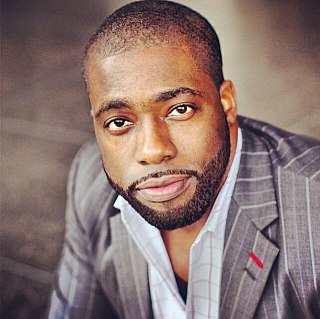A Quote by Edward Burtynsky
I can go into the wilderness and not see anyone for days and experience a kind of space that hasn't changed for tens of thousands of years. Having that experience was necessary to my perception of how photography can look at the changes humanity has brought about in the landscape. My work does become a kind of lament.
Related Quotes
Certainly Christianity is an experience, but equally clearly the validity of ane experience has to be tested. There are people in lunatic asylums who have the experience of being the Emperor Napoleon or a poached egg. It is unquestionably an experience, and to them a real experience, but for all that it has no kind of universal validity. It is necessary to go far beyond simply saying that something comes from experience. Before any such thing can be evaluated at all, the source and character of the experience must clearly be investigated.
I look at a pilot and go, "I see the landscape. I see the characters. I see the direction and the potential of the story." And I also go, "That didn't work. I could change that. Maybe that works. I don't know. We'll see." For me, I look at it, as an actor, as what can I improve upon? So, to have it out there and judged solely on its own merit is really a unique experience for me.
Getting into a space suit and going outside, to me, getting your peripheral vision involved and looking at the Earth was a whole different experience than looking through the window. And it's kind of the same on earth. If you're driving in a car and you see like a beautiful sunset or landscape, it looks so much better if you stop and get out and kind of take it all in and that's kind of what it's like doing a spacewalk.
The near side of a galaxy is tens of thousands of light-years closer to us than the far side; thus we see the front as it was tens of thousands of years before the back. But typical events in galactic dynamics occupy tens of millions of years, so the error in thinking of an image of a galaxy as frozen in one moment of time is small.
The space station mission was kind of the culmination of all of my experience of being a NASA Astronaut, so it had brought all of my previous experience into play. I had to learn the Russian language to a fluent level so that I could function as the co-pilot of the Soyuz Spacecraft that we flew up and back from the space station. And then the challenge of being the Commander of the whole expedition, a six and a-half month flight aboard the international space station. I felt the burden of the whole mission on my shoulders, which was fine, and fortunately everything did go well.
It's kind of interesting to experience that kind of a ride after well, essentially so many years of enjoying a career based on failures and then suddenly something clicks. The weird thing is, I never changed a thing. The process is still the process as it ever was. The fact that people decided to go and see a movie that I was in was probably the most shocking thing that I've ever been through.
Helen Vendler calls this kind of interrogation of a work "roads not taken," suggesting that it's useful, when writing critically, to consider what differences it makes to the work or the encounter with the work if changes are made. It's one way of better understanding your experience, comparing it to other possible experiences you can imagine having.
I'm trying to see if I can speak about our society today, but I cannot speak about the theme, because it's a bit difficult. I'm just starting to work on that. Because we live in a kind of world which has drastically changed in the last years. We speak about globalization, and how it's become the reason for everything. It has a kind of deep meaning. To be everywhere and to be nowhere at the same time. You think to globalize, you think, the Earth, it's your country. No, it's not your country. It's not easy to catch it in a cinema. It's too huge.
Where we're operating is orbital adventures. We would offer five to seven days in low Earth orbit aboard our own spacecraft where customers would have the view of the Earth; get to experience really living in space, probably conducting some scientific investigations that we would piggyback onto those flights. So, they would have the whole experience, kind of a mini-experience of what professional astronauts have.
It's not what you go through, but how that experience affects you. For some people, it could be a near car crash that changes your life. For other people, it could take five years of going to prison for them to realize they need change in their life. So it's not really the experience but more how the experience affects you.


































